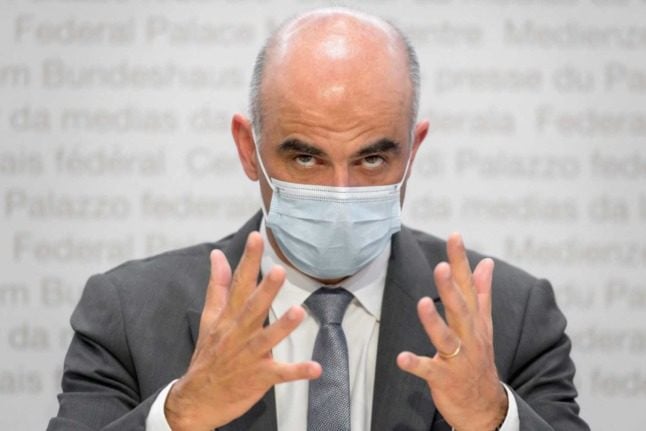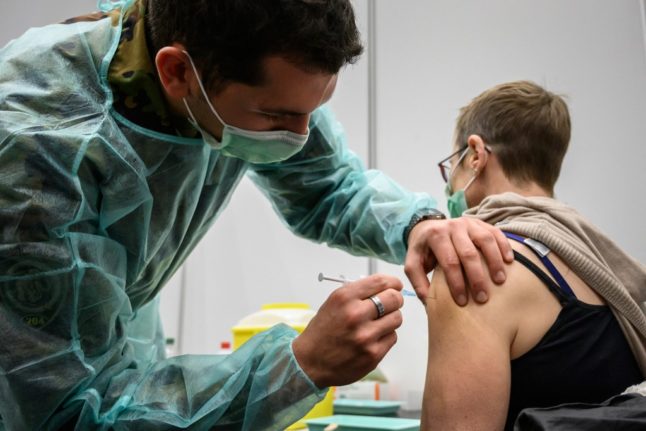The announcement was made by Virginie Masserey from the BAG at a press conference on Tuesday afternoon.
This means that people will be deemed to have immunity to Covid-19 for a 12-month period after their second vaccination, thereby entitling them to various privileges under the country’s Covid-19 health pass scheme.
READ MORE: What will Switzerland’s Covid-19 pass allow you to do?
The formal changes to back the announcement will be rolled out in the coming weeks.
Previously, the period of immunity under the health pass for vaccinated individuals had been set at six months.
This had meant that some of the first people who had been vaccinated in Switzerland were set to have their immunity expire under the official immunity card scheme at the same time it was being rolled out
While this change will impact those who have been vaccinated, those who have recovered from the disease will still be considered to have immunity for six months – i.e. their period of immunity will not be officially extended, the Swiss government indicated in a press conference.
Experts are split on the duration of Covid protection and immunity which is provided by vaccinations, however the Swiss government is satisfied that vaccinations provide protection for at least 12 months, while minimising the risk of passing on the virus.
UPDATED: Everything you need to know about the ‘green pass’, Switzerland’s coronavirus immunity card
Otherwise known as a “green card” or “vaccination certificate”, the health pass is a digitalised form of the existing vaccination passport which would entitle holders to certain privileges.
The Covid-19 certificate – otherwise known as the Covid-19 pass or the green pass – is available in paper and digital form.
According to the Swiss government, the pass “provides documentary evidence that you have had a COVID-19 vaccination, have had and recovered from the disease or have tested negative”.



 Please whitelist us to continue reading.
Please whitelist us to continue reading.
Member comments